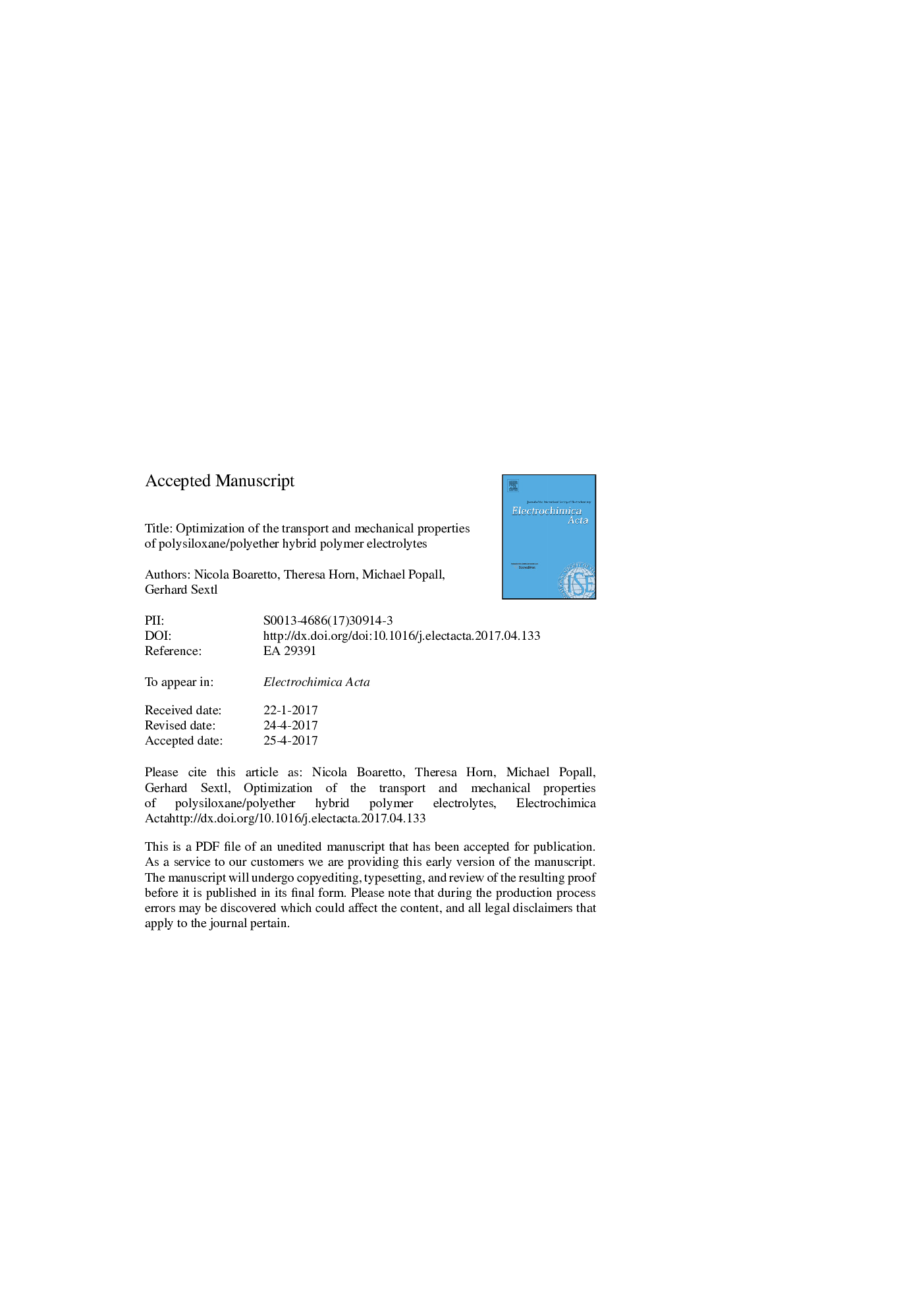| Article ID | Journal | Published Year | Pages | File Type |
|---|---|---|---|---|
| 4767037 | Electrochimica Acta | 2017 | 35 Pages |
Abstract
In this study, the thermo-mechanical properties of networked, polysiloxane/polyether-based, hybrid polymer electrolytes are optimized with the aim of enabling room-temperature operation in lithium metal-polymer batteries. The structural parameters of the electrolytes (polyether chain length, cross-linking and salt concentration) are varied in order to get the best tradeoff between conductivity and mechanical stability. The optimized material has a conductivity close to 1.5·10â4 S cmâ1 at room temperature and a shear storage modulus of 50 kPa up to 100 °C. The effect of TiO2 nano-particles is also studied with the results showing an overall ambiguous effect on the materials properties. Finally, one of the materials with the highest conductivity is used as electrolyte in a Li/LiFePO4 cell. This cell has good rate capability and cyclability due to the high conductivity of the electrolyte. However, the high conductivity is reached at expense of the mechanical stability and the resulting electrolyte proves to be too weak to work as an efficient barrier against lithium dendrite growth.
Related Topics
Physical Sciences and Engineering
Chemical Engineering
Chemical Engineering (General)
Authors
Nicola Boaretto, Theresa Horn, Michael Popall, Gerhard Sextl,
